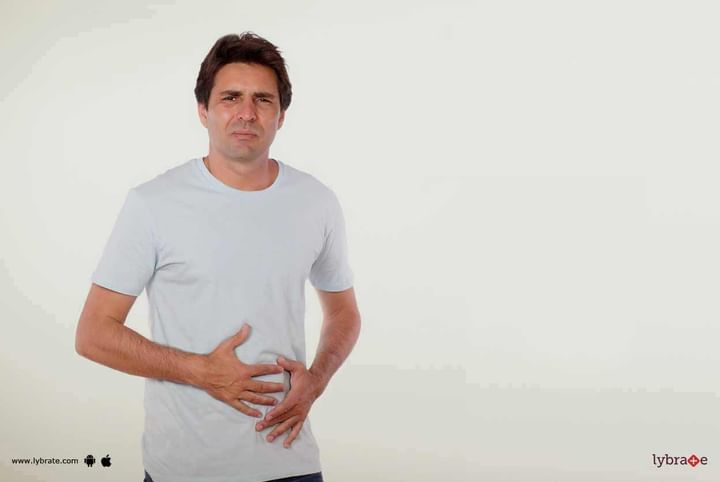Hemorrhoids - When Is Surgery Required?
Hemorrhoids, also known as piles, are swollen veins or blood vessels, which can be internal (located inside rectum) or external (located outside rectum). They might be managed by increasing fluid intake and a high-fiber diet. Sometimes, Hemorrhoids might get infected and irritated to an extent that they require surgical removal.
Causes of Hemorrhoids:
Hemorrhoids are caused by increased pressure in blood vessels around the anus, causing them to swell and inflame which might be caused by a number of reasons.
-
Prolonged constipation
-
Chronic diarrhoea
-
Aging
-
Pregnancy as it increases pressure on pelvic blood vessels
-
Weight lifting
-
Family history of Hemorrhoids
-
Vomiting repeatedly
-
Sitting continuously for a very long period of time.
Symptoms of Hemorrhoids:
Some of the common symptoms of Hemorrhoids are:
-
Internal Hemorrhoids might bleed painlessly after bowel movement, but are problematic if they bleed too heavily.
-
External Hemorrhoids might also bleed after bowel movement, but often become irritating and painful.
-
External Hemorrhoids can lead to blood clots inside the vessel, which can cause severe pain. Proper treatment for such Hemorrhoids involves “incision and drainage” procedure.
-
Itchy and sore bottom.
-
A lump hanging off the anus.
Types of Hemorrhoids:
The type of Hemorrhoids decides the course of action for treatment.
-
First-degree Hemorrhoids are small swellings which develop on inner lining of anus, being invisible from the outside.
-
Second-degree Hemorrhoids are larger swellings which might come out of the anus during bowel movement before disappearing inside again.
-
Third-degree Hemorrhoids are lumps hanging off the anus which can be pushed back inside.
-
Fourth-degree Hemorrhoids are larger lumps hanging down from the anus but cannot be pushed back inside.
Surgeries without Anesthesia:
-
Banding or rubber band ligation involves using a tight band around the base of Hemorrhoid to cut off its blood supply. It takes two or more procedures to be performed about two months apart.
-
Having the best success rate for small and internal Hemorrhoids, sclerotherapy involves injecting a chemical into Hemorrhoids, causing them to shrink and stop bleeding.
-
Coagulation therapy or infrared photocoagulation uses infrared light (heat or extreme cold) to retract and shrink the Hemorrhoid and is usually performed along with an anoscopy.
-
Hemorrhoidal artery ligation (HAL) or transanal hemorrhoidal dearterialization (THD) locates blood vessels causing Hemorrhoids to close them off.
Surgeries with Anesthesia:
-
Hemorrhoidectomy is used for large and external Hemorrhoids which do not respond to non- surgical intervention. So, they are cut out. Anesthesia can be general, regional, or local in this procedure. It takes longer time to recover completely.
-
Hemorrhoidopexy or stapling requires general, regional, or local anesthesia, and is used to treat prolapsed Hemorrhoids. A surgical staple cuts off the blood supply to Hemorrhoids to make the tissue shrink and reabsorb. It takes relatively less time for a full recovery.
Post- Surgical Care:
Some of the post-care instructions are as follows
-
Painkillers might be prescribed for rectal and anal pain.
-
Consumption of a high-fiber diet prevents constipation and recurrence of Hemorrhoids.
-
Staying hydrated helps a lot.
-
Avoid heavy weight lifting and pulling.
-
Sitz bath helps to deal with post- surgical discomfort.
-
Seek medical help if having painful urination, fever, or dizziness.
Non-surgical Management of Hemorrhoids:
-
Hemorrhoids can be managed non-surgically by reducing strain in and around the anus.
-
Consuming a high fiber diet including cereals, fruits, vegetables, pulses, nuts, seeds, etc.
-
Consuming healthy fluids like water but avoiding alcohol and caffeinated drinks.
-
No delaying the emptying of the bowels.
-
Preventing constipation.
-
Weight management to lose excess body weight.
-
Regular exercise.
Take Away:
Hemorrhoids, if not severe, can be managed non- surgically. But if they get very painful and severe, surgical intervention through a number of techniques might be required; each one of them being safe, depending upon the severity of the situation.



+1.svg)
